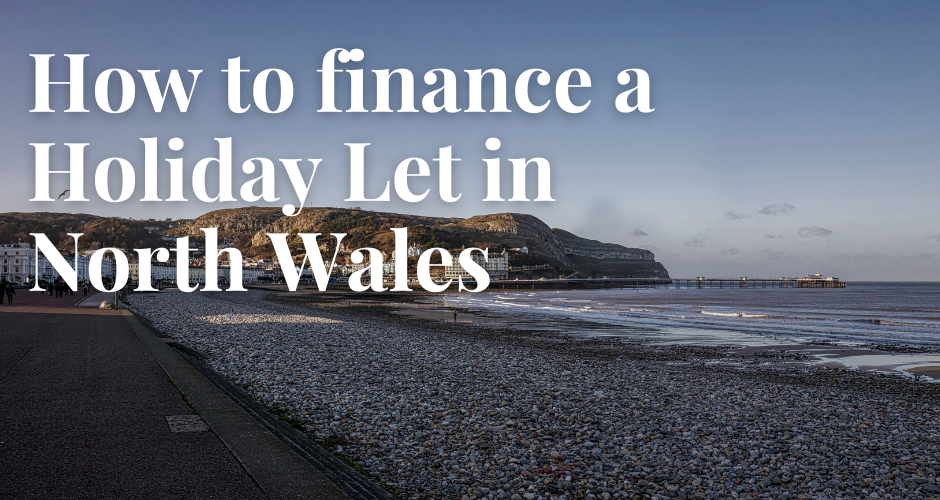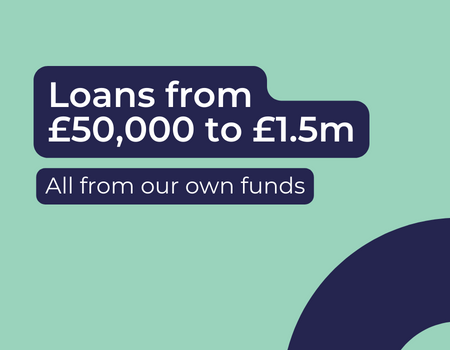How to Finance a Holiday Let in North Wales

Introduction
In the picturesque landscapes of North Wales, the holiday let market is thriving. With its stunning coastlines, majestic mountains, and charming towns, North Wales has become a popular destination for tourists, making it a lucrative location for holiday let investments. However, navigating the financial landscape of this market can be complex. It’s crucial for potential investors to understand the various financing options available to them to make informed decisions.
Understanding Holiday Let Mortgages
When it comes to understanding how to finance a holiday let in North Wales, one of the primary options is a holiday let mortgage. Unlike traditional residential mortgages, holiday let mortgages are specifically designed for properties that are rented out on a short-term basis to tourists.
Holiday let mortgages work similarly to standard mortgages, but with a few key differences. Lenders typically consider the potential rental income of the property when determining your affordability. This can be advantageous if the property is in a high-demand tourist area like North Wales, where rental income can be substantial.
However, these types of mortgages often require a larger deposit than standard mortgages. The exact amount can vary, but it’s not uncommon for lenders to require a deposit of around 25-40% of the property’s value. This is because holiday lets are often seen as a higher risk due to the potential for vacant periods when the property isn’t rented out.
When considering a holiday let mortgage, it’s important to shop around and compare options. Some lenders specialise in holiday let mortgages and may offer more competitive rates or terms. Resources like traditional building societies such as Holiday Let Mortgages | The Cumberland can provide valuable information on this topic. Of course, in many cases, the traditional financing route won’t work, which is why a bridging loan can be a valuable addition to your finance armoury.
In conclusion, understanding how holiday let mortgages work is a crucial step in financing a holiday let in North Wales. By doing your research and considering your options, you can find a financing solution that fits your needs and helps you make the most of your investment.
Criteria for a Holiday Let in Wales
In order to qualify for a holiday let mortgage, there are certain criteria that your property must meet. One of the most important rules to be aware of is the 182-day rule. This rule stipulates that the property must be available for commercial letting to the public for at least 210 days per year, and actually let out for at least 105 days.
It’s also important to note that you cannot count longer-term lets of more than 31 days towards the 105-day rule unless the total of such lets does not exceed 155 days. This rule is in place to ensure that the property is being used primarily for short-term holiday lets rather than long-term residential lets.
In addition to the 182-day rule, there are other requirements that must be met. For instance, the property must be fully furnished and have all the necessary facilities for it to be a self-catering accommodation.
Financing Options for Holiday Lets in North Wales
When it comes to financing a holiday let, there are several options available. The most common are traditional mortgages and holiday let mortgages. Traditional mortgages are typically used for residential properties, while holiday let mortgages are specifically designed for properties that are rented out on a short-term basis to tourists.
Holiday let mortgages often require a larger deposit and have higher interest rates than traditional mortgages due to the perceived higher risk. However, they also take into account the potential rental income from the property, which can make it easier to qualify if the property is in a high-demand tourist area.
Another financing option is refinancing an existing property. This involves changing your current mortgage deal, either by switching lenders or negotiating a new deal with your current lender. Refinancing can potentially lower your interest rates or give you access to additional funds, which can then be used to finance your holiday let.
Lastly, it’s important to consider the potential earnings and return on investment from your holiday let. The income generated from the property can be a significant factor in your financing decision. For a detailed forecast on potential earnings, resources like Our Beginners Guide to Holiday Letting | Menai Holidays can provide valuable insights.
Top Locations for Holiday Lets in North Wales
North Wales is home to a variety of locations that are perfect for holiday lets. Here are the top 7 locations:
- Abersoch
- Rhosneigr
- Trearddur Bay
- Criccieth
- Beaumaris
- Llandudno
- Menai Bridge
Each of these locations offers unique attractions and experiences, making them popular with tourists. The investment potential in these areas is significant, with high demand for holiday lets and strong rental yields.
Regulations and Business Rates for Holiday Lets in Wales
When investing in a holiday let, it’s crucial to understand the regulations and business rates that apply. In Wales, holiday lets are subject to business rates, which are a form of tax charged on commercial properties.
The amount of business rates you’ll need to pay depends on the ‘rateable value’ of your property, which is determined by the Valuation Office Agency. It’s important to factor these costs into your financial planning when considering a holiday let investment.
Furthermore, there are specific regulations for holiday lets in Wales. For example, the property must be available for commercial letting for at least 210 days per year and actually let out for at least 105 days. Understanding these regulations is key to running a successful holiday let business. For more information on this topic, you can refer to Non-Domestic Rates for Self-Catering Properties in Wales | Gov.Wales.
Can you build a holiday home in North Wales?
Yes, it is possible to build a holiday home in North Wales, but there are several factors to consider.
Firstly, you would need to find a suitable plot of land that is zoned for residential use. The location of the plot is crucial as it can affect the desirability of your holiday home for potential renters.
Secondly, you would need to obtain planning permission from the local council. The process of obtaining planning permission can be complex and time-consuming and there is no guarantee that permission will be granted. It’s important to note that planning regulations can vary between different areas, so it’s essential to check the specific requirements for the area where you plan to build.
Thirdly, you would need to consider the cost of construction. Building a holiday home can be a significant investment, and it’s important to ensure that you have a clear understanding of the costs involved before you begin. This is where Breeze Capital come in because we can fund the development of your holiday let in North Wales by providing you with Development Finance to build the property.
Finally, once the holiday home is built, it would need to meet certain criteria to be classified as a holiday let for tax purposes. For example, it would need to be available for commercial letting for at least 210 days per year and actually let out for at least 105 days.
In conclusion, while it is possible to build a holiday home in North Wales, it requires careful planning and consideration. It may be beneficial to seek advice from a property consultant or legal expert to help navigate the process.
FAQs
When it comes to financing a holiday let in North Wales, several questions often arise. Here are some of the most frequently asked questions:
- Do you pay council tax on a holiday let in Wales?
No, you do not pay council tax on a holiday let in Wales. Instead, holiday lets are subject to business rates. However, it’s important to note that the rules can vary depending on how often the property is rented out and how it’s used when it’s not being let.
- What is the 182-day rule in Wales?
The 182-day rule is a requirement for a property to qualify as a holiday let for tax purposes. The property must be available for commercial letting for at least 210 days per year, and actually let out for at least 105 days. For more information on this rule, you can refer to Non-Domestic Rates for Self-Catering Properties in Wales | Gov.Wales.
- How to finance a holiday home?
Financing a holiday home can be done through various methods, including traditional mortgages, holiday let mortgages, and refinancing an existing property. The best option depends on your individual circumstances and financial goals. For a detailed guide on financing a holiday home, check out Our Beginners Guide to Holiday Letting | Menai Holidays.
In Summary
Financing a holiday let in North Wales involves understanding the different mortgage options, knowing the criteria for a holiday let, exploring various financing options, and being aware of the regulations and business rates. It’s also important to consider the potential earnings and return on investment, as well as the top locations for holiday lets in North Wales.
In conclusion, the key to successfully financing a holiday let is thorough research and careful planning. By understanding the financial landscape and making informed decisions, you can make the most of your investment and enjoy the benefits of owning a holiday let in the beautiful region of North Wales.
You can call us on 01244 565095
Follow us on our socials
YouTube
Or click here to go to our main page: www.breezecapital.co.uk

